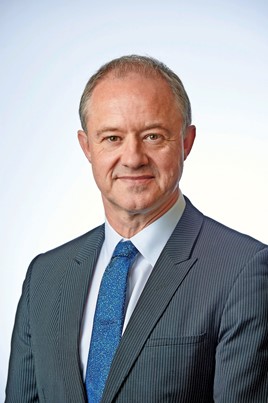Since it was first established as Railtrack in 1994, Network Rail has had seven chairmen and eight chief executives, and I have known most of them pretty well. Most have been decent, hard-working men who brought a great deal to the role and made solid contributions - but other than the first, John Edmonds, none were experienced railwaymen.
Until, that is, Andrew Haines OBE was appointed in May 2018. That it had taken since 1997 to appoint a railwayman who knew a buffer from a buckeye is maybe worth pondering on…
Likewise the chairmen. Until the appointment of Sir Peter Hendy CBE in July 2015, none of the previous chairmen had much rail experience. Some - in my opinion - seemed to have little detailed interest (or even enthusiasm) either.
I remember one (without question the least impressive) whose first industry speech made clear that he regarded the role as an alternative way to fill time other than on the golf course. He was a complete dead loss, in my view, and left the job under something of a cloud after a further dire industry speech which had a few hundred railway managers and executives rolling their eyes in despair and disgust.
The accompanying graphic (see page 9) shows their tenure and overlaps with CEOs. But having watched every pairing from start to finish, my opinion is that not one of those teams functioned as a fully effective outward-facing pair, batting for their company and industry. The individual CEOs worked hard and effectively (to varying degrees), according to how the cards fell and ‘events’ unfolded. But at no point did I perceive any ‘bigger than the sum of its parts’ sense to any of the pairings - until Hendy and Mark Carne joined forces.
They always did seem to work well together - and while Hendy as a chairman had much greater visibility, involvement and engagement than his predecessor with the industry and its specialist journalists, he never once stepped over the line to infringe, cramp or otherwise compromise Carne’s executive role. For the first time, it felt to me that there was a genuine and comparatively effective joined-up feel between the CEO and chairman at NR.
There was solid progress, not least in safety (especially worker safety), and Carne’s part in successfully securing the £49 billion Control Period 6 (CP6) funding settlement was a solid legacy.
Likewise, there was some success in devolution, although the reality was that it was less extensive than the world was encouraged to believe. For proof of this you only had to watch the very evident (increasing) tension between the supposedly devolved Routes and the centralised, large and powerful Infrastructure Projects (IP) division, which made full use of its independence of action.
Meanwhile, costs continued to escalate in tandem with the company’s headcount - not least at its large modern ‘campus’ HQ at Milton Keynes. I interviewed Mark Carne early in his CEO’s role, and he told me that his target - as devolution and contestability advanced - was to drive the Milton Keynes headcount down to fewer than 2,000 by the time he left.
Carne left the CEO’s role last summer after four years, and today the Milton Keynes headcount stands at 3,500 in the context of an overall corporate headcount of 40,000.
On the upside, management of big engineering projects had seemingly improved significantly in terms of completion within planned deadlines, especially over the potentially troublesome Christmas period.
Some critics suspected that this had been achieved by scaling back the amount of work done during possessions, so that on-time completion was not a challenge; if proven, this would mean higher costs than necessary and poor efficiency.
But on the surface at least, the terrible problems caused by IP’s poor performance and incompetence that had led to such misery for passengers at Christmas 2014 - when major possessions at both King’s Cross and Paddington ran horribly late, causing major disruption and very damaging news headlines - had been successfully tackled by Carne. That in itself was a success.












